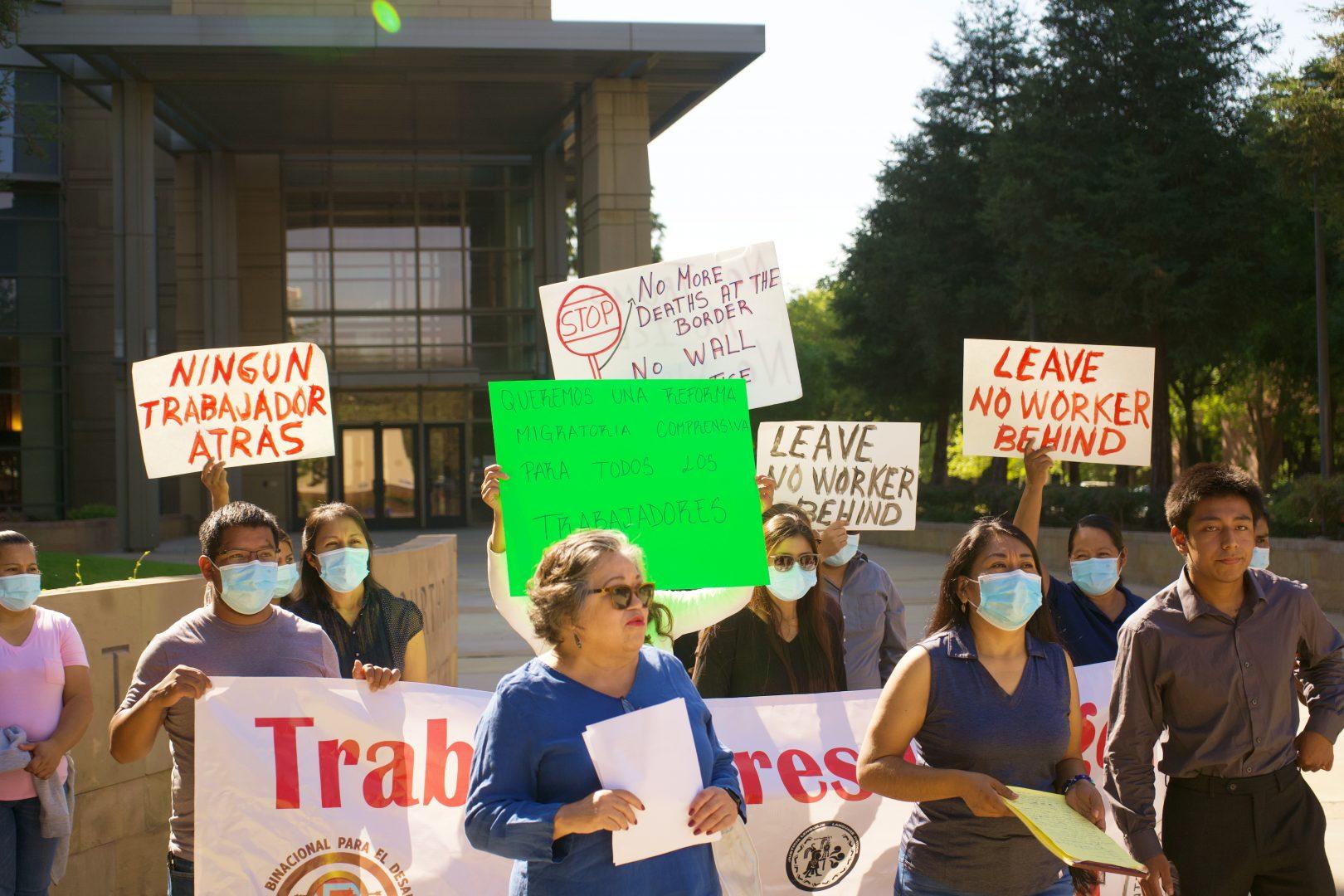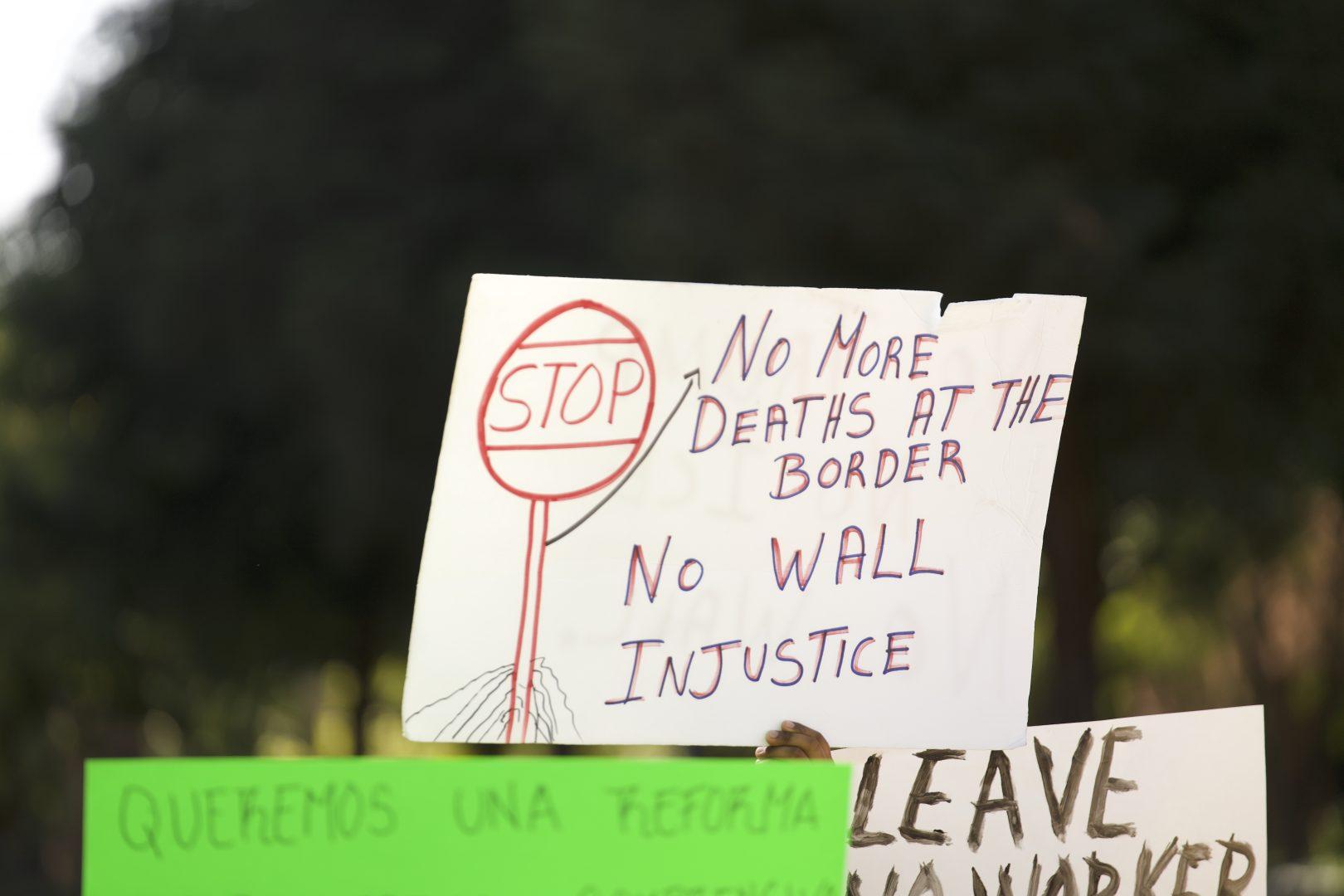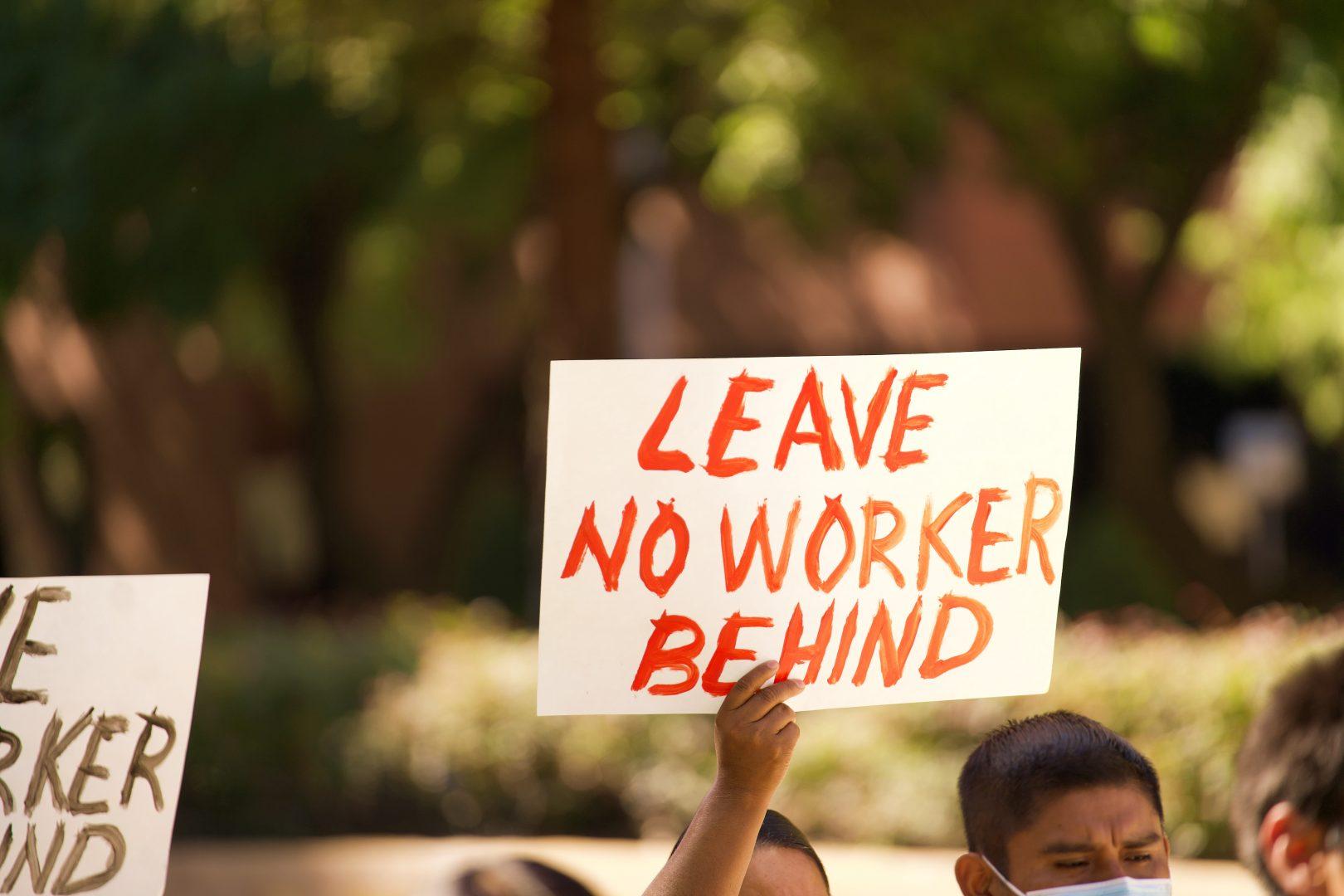On Aug. 29, community members gathered in front of the federal building in Downtown Fresno to protest against the Farm Workforce Modernization Act (FWMA).
Protesters called for Sen. Alex Padilla to vote no on the act, which is a bipartisan bill led by Reps. Zoe Lofgren and Dan Newhouse.
“The Farm Workforce Modernization Act left behind many workers, even people who have worked in the felds for many years. We want to urge Sen. Padilla to oppose this act, and more than anything to listen to us,” said Martinez Nateras, program director for the American Friends Service Committee (AFSC).
Padilla expressed support for FWMA in June 2022, according to a news release. The bill intends to establish provisions to offer immigrant farm workers lacking permanent legal status certifed agricultural worker (CAW) status and change the H-2A temporary worker program.
It also outlines the implementation of an electronic verifcation system called E-Verify.
“Stabilizing the workforce will protect the future of our farms and our food supply. The Farm Workforce Modernization Act accomplishes this by providing a path to legal status for farmworkers and updating and streamlining the H-2A temporary worker visa program while ensuring fair wages and working conditions for all workers,” Lofgren said in a news release.
Although FWMA passed in the House of Representatives with a 247-174 vote on March 28, 2021, it has not yet been introduced in the Senate.
According to the bill, if passed, it will introduce a cap on visas and “H—2A nonimmigrant status[es],” proposing a limit of 20,000 for year round workers within the frst three fscal years. This cap on the number of H-2A visas, along with E-verify, has skeptics of the bill worried about the future of the agriculture industry.
Cristel Jensen, a community-driven strategist for the California Institute for Rural Studies, attended the demonstration and focused on intergenerational impacts.
“As of right now when we look at this timeline, the language of the bill excludes Black [and] Indigenous communities. Why? Because the exclusions of this bill say that, if at any point you interacted with law enforcement in a negative way and have a record, then you won’t become a legal resident,” Jensen said.
Jensen also has ties to Fresno State and said she “loves” spending time at the Social Science buildings, reflecting on her time with her mentor, Dvera Saxton, an anthropology professor.
She urged the community to join with the farm worker movement. “Fresno State has a very special place in my heart,” Jensen said. “You are the organizers of the world. Just join the farm worker movement in any form of disruption that you want to continue pursuing that path to liberation. Do it.”







